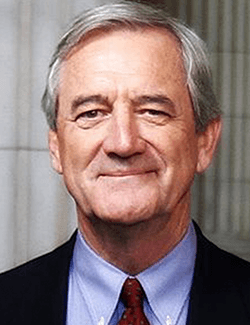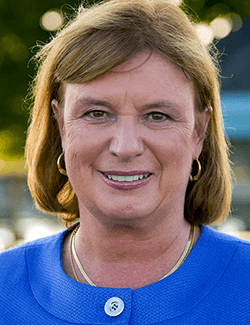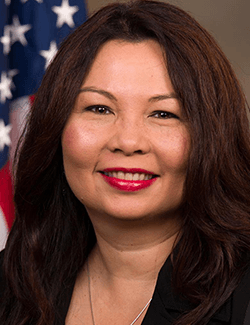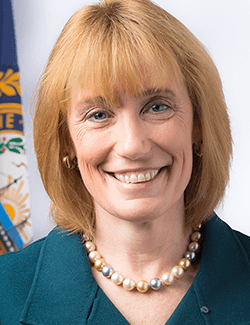Farm Owners Convicted for Allowing Cow Torture.


Target: Robert Gunnell, Judge in the Provincial Court of British Columbia
Goal: Applaud decision to convict farm owners for allowing employees to abuse cows.
The owners of a dairy farm where employees allegedly abused cows have pled guilty and have been sentenced to pay $75,000 per count of abuse, the maximum monetary fine. One of Chilliwack Cattle Sales’ owners, Wesley Kooyman, was also convicted of another count of animal abuse, and he will be prohibited from having control over his factory farm or owning any animals for a year.
Judge Robert Gunnell, who handed down the ruling, said that the employees were not properly trained or supervised by the farm owners, resulting in the significant abuse the cows suffered. Wayne Kooyman would allegedly only check on his employees once a day, at 3:30 in the morning, and so the employees could easily hide their abusive behavior. As soon as the owners left, they would reportedly go back to beating the cows, kicking them, and hanging them from chains around their neck. The workers allegedly responsible for the abuse will go on trial in May.
This victory for farm animals is a result of tireless work from animal advocates, including members of the ForceChange community who signed petitions like this one. While the ruling cannot erase the abuse the cows faced, it will prevent more animals from needlessly suffering at the hands of cruel humans. Sign this petition to thank Judge Gunnell for standing up for these dairy cows.
A newly elected class of progressives serve their first full day in Congress --
and they are deeply grateful to PCCC members. Since 2009, we've raised
over $8 million for progressive candidates and nearly 10 million calls!
A record high number of new House members are joining the Progressive Caucus,
and every new senator got elected with Elizabeth Warren's and our help.
Our cavalry has arrived to make the case for expanding Social
Security benefits, show the way to improve health care competition through
a public option, and demand a $15 minimum wage.
We're proud to fight as partners in the trenches with them as they play not
just strong defense, but strong offense. We'll work to protect millions of
Americans from Trump's authoritarian agenda, and fight to reform voting rights,
criminal justice, and campaign finance.
 |
Pramila Jayapal (WA-07) is a top PCCC-endorsed "bold
progressive" game changer and ran on many Warren-Sanders ideas! As an activist,
she helped pass a $15 minimum wage in Seattle. PCCC members donated $57,558
through 11,470 donations and made 364,995 calls. Final result: 56.3% to
43.9% after winning big primary. Pramila says, "The Progressive Change Campaign Committee helped me from the beginning, and I want to express my heartfelt gratitude to PCCC members who made over 364,000 calls to voters and over 11,400 individual grassroots donations. Thanks to the support of great friends like PCCC, we won! Now we’ll keep fighting together to make college debt free, expand Social Security, and increase the federal minimum wage.” |
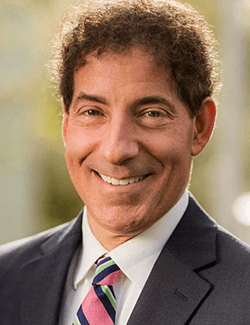 |
Jamie Raskin (MD-08) is another top PCCC-endorsed "bold
progressive" game changer -- and he attended our candidate training. Jamie
literally wrote the book on gerrymandering reform and is a crusader for campaign
finance reform. PCCC members donated $56,648 through 12,114 donations and made
over 21,000 calls. Final result: 59.3% to 35.6% after winning close
primary. Jamie says, “Happy New Year PCCC, and thank you! In 2016, you helped me win the most expensive Congressional primary in American history. In a $21 million race, we were outspent 10-1 by opponents and by more than 20-1 on TV. But PCCC was there when I needed a progressive lifeline from around the country. PCCC members gave me more than 11,000 small financial contributions and big solidarity, strength, and hope. With the grassroots campaigning and awesome progressive fervor you helped create, we proved that in a democracy, public office is something you earn -- not something you buy. And on our side you earn it through service and commitment to democratic values and progressive change. America needs PCCC’s visionary national network and agenda now more than ever.” |
Our allies need to know that when they speak up
against Trump that we will have their backs.
We were also proud to help elect Kamala Harris (CA-Sen) as a Take Back The
Senate candidate, and Ruben Kihuen (NV-04) as an Expand The Map candidate.
In 2017, we look forward to fighting alongside these progressive winners,
Sen. Elizabeth Warren, and other progressives in Congress.
The Year in Wildlife Wins: 2016 Victories in Review. 2016 was full of challenges for wildlife. With an increasingly anti-wildlife,
hostile Congress, the illegal takeover of Malheur National Wildlife Refuge and an Interior Secretary
nominee that raised serious concerns for wildlife conservation, there were
certainly setbacks and frustrating outcomes. But this year had plenty of wins and success stories
too: the first female panther crossed the Caloosahatchee River, the first phase
of the Desert Renewable Energy Conservation Plan kicked off in September and
President Obama permanently banned new offshore drilling in huge areas of the
Atlantic and Arctic Ocean. Here’s a look back at this year’s good news.
Red wolves still need serious help from FWS to
survive and recover in their North Carolina habitat. We’re keeping the pressure
on FWS to recommit to the red wolf recovery effort and resume releasing captive
red wolves into the wild, managing coyotes in the recovery area to prevent
hybridization and we are undertaking a serious coexistence effort to create
social acceptance for wolves in the wild of North Carolina. This battle will
certainly continue in 2017.
The post The Year in Wildlife Wins: 2016 Victories in Review appeared first on Defenders of Wildlife Blog. |
| Using 1953 Law, Obama Indefinitely Blocks Offshore Oil Drilling in Arctic and Atlantic |
| ||
President Obama banned oil and gas drilling in almost all of our
Arctic Ocean and swaths of the Atlantic — forever.
This is a
major victory for our oceans, marine wildlife and coastal communities — and it
wouldn't have happened without the determination of hundreds of thousands of
NRDC supporters like you.
For more than three years, NRDC led the charge
to push President Obama to put these two coasts off-limits to the oil and gas
industry. In the last month, we underscored this decision as one of the key
actions the President should take before he leaves office. And today,
against all odds, our voices were finally heard — and heeded.
 |
The
President's decision permanently removes most Arctic waters and portions of the
Atlantic Ocean from oil and gas leasing — safeguarding our oceans and marine
wildlife, reducing global warming pollution and moving America away from dirty
fossil fuels and toward a clean energy future.
But it still leaves parts of the Atlantic Ocean and other coastal waters, especially the Gulf of Mexico, vulnerable to Big Oil — which becomes even more dangerous once Donald Trump is sworn in as President just weeks from now.
Trump has made no secret of his intention to open up more of our cherished public lands and offshore waters to drilling in the first 100 days of his presidency. He's already stocking his cabinet with fossil fuel insiders like Exxon Mobil CEO Rex Tillerson and climate deniers like Oklahoma Attorney General Scott Pruitt.
That means these last weeks before Inauguration Day are absolutely critical as we gear up to defend today's win and fight Donald Trump's anti-environment plans on every front — in court, in Washington and in cities and towns across America. But how hard we can fight depends directly on your support in the next few days.
Please join me in celebrating today's important victory protecting our Arctic and Atlantic coasts from oil drilling — and donate so we're ready to take on the Trump administration's disastrous environmental plans in 2017 and beyond.
Over the past few years, YOU joined with thousands to ask President Obama to
protect our coasts from dangerous drilling projects and keep climate
change-causing fossil fuels in the ground. You sent messages, called the White
House, protested on the ground (and on the water) — and he
listened!But it still leaves parts of the Atlantic Ocean and other coastal waters, especially the Gulf of Mexico, vulnerable to Big Oil — which becomes even more dangerous once Donald Trump is sworn in as President just weeks from now.
Trump has made no secret of his intention to open up more of our cherished public lands and offshore waters to drilling in the first 100 days of his presidency. He's already stocking his cabinet with fossil fuel insiders like Exxon Mobil CEO Rex Tillerson and climate deniers like Oklahoma Attorney General Scott Pruitt.
That means these last weeks before Inauguration Day are absolutely critical as we gear up to defend today's win and fight Donald Trump's anti-environment plans on every front — in court, in Washington and in cities and towns across America. But how hard we can fight depends directly on your support in the next few days.
Please join me in celebrating today's important victory protecting our Arctic and Atlantic coasts from oil drilling — and donate so we're ready to take on the Trump administration's disastrous environmental plans in 2017 and beyond.
Share this Facebook post to tell your friends and family the good news about our oceans!Today we celebrate with the Arctic and Atlantic communities whose cultures and livelihoods depend on a healthy ocean. But the fight is not over for the Gulf Coast communities who still live under the shadow of oil spills and fossil fuel pollution, and we will continue to stand with them in that fight.
President Obama enacted these protections using a law that will be difficult for President-elect Trump to overturn, but there is still a chance he could try. If Trump tries to go after these new protections, we’ll stand in his way — and I know you’ll be standing with us.
|
|
| The FOUR PAWS year 2016 in review |
| ||
| Bring You Home - the bears you saved in 2016 |
| ||
I want to share with you a brief video that features just a few of Animal
Rahat's many highlights of 2016 – from the opening of its new sanctuary to the
daring rescue of a cow who had fallen into an uncovered well.
PETA's projects supporting Animal Rahat are truly making a difference in the lives of so many animals who have previously known nothing but abuse and hideous neglect.
PETA's projects supporting Animal Rahat are truly making a difference in the lives of so many animals who have previously known nothing but abuse and hideous neglect.
| From the first major victory in an Endangered Species Act lawsuit brought on
behalf of animals in captivity, to a cutting edge legal strategy that saved a
puppy from an abusive situation, to an undercover investigation that’s still
sending shockwaves through the factory farm industry—thanks to your generous
support—the Animal Legal Defense Fund spent 2016 fighting for animal protection
on every front. Today—and everyday—we thank you for your unwavering support. These are your victories. Today, Tilikum’s death at SeaWorld is a stark reminder of how much work we still have ahead of us in 2017—and we’re so glad we have you by our side. Thank you for your support in 2016—and thank you for your support in the coming year. VIDEO: Best Animal Wins 2016. 2016 was a phenomenal year for animals thanks to you! Historic measures to protect elephants... dogs rescued from the murderous dog meat industry... thousands of young people educated in compassion... and so much more. SEE VIDEO
| ||
|

